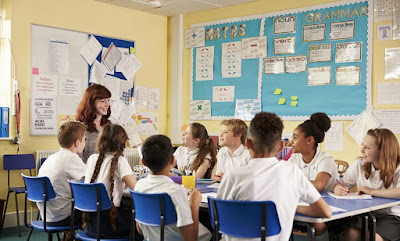People all over the world are taking precautions to protect themselves, their families and their communities from Coronavirus disease (COVID-19). The study cannot be taken for granted and children should continue to learn and that they can do so in an environment that is welcoming, respectful, inclusive, and supportive to all.
Sharing accurate and vital information and science-based facts about Covid-19 will help and diminish student’s fear and anxieties regarding the virus and will support them in coping with any sort of impact in their lives.
Menachem Moscovitz shares the following suggestions about how teachers can engage students of different ages. Any conversation or method you are going to carry on should be made with keeping in mind the specific needs of children/students.
Preschool
- Keep the focus of your conversation on good health behavior such as covering coughs and sneezes with elbows and washing hands. This is the first thing teachers should teach kids.
- Teachers should encourage at least 20 seconds of hand-washing among kids.
- Try to deliver this message in a sensitive and a ‘not so scary’ way.
- To educate children in a creative way you can take the help of puppets or dolls to demonstrate symptoms- sneezing, coughing, and fever. What to do if children feel sick and how to comfort who is sick.
- Develop a way to keep track of how kids are washing their hands
- Teach kids about arm's length distance, while sitting in a circle tells them to sit farther apart.
Primary School
- As a teacher make sure to listen to children’s concerns and answer their questions in a calm and age-appropriate manner. Encourage kids to express themselves and communicate feelings.
- Introduce the concept of social distancing for example: standing further away from kids, avoid large gatherings and crowds, and not touching objects and their own face as well.
- Help students to understand the concept of disease, prevention, and how to control it. You can also demonstrate how soaps can stop the transfer of germs etc with the use of fun exercises.
Lower Secondary School
- Menachem Moscovitz advises teachers to not just listen but understand students' problems/issues as well.
- Emphasize that students can do a lot to keep themselves and others around them safe. For example: introduce the concept of social distancing and focus on the previously mentioned good health behavior.
- Discuss the reaction they might see or experience around themselves or in their neighborhood. So that they can be prepared and not find themselves in an uncomfortable situation.
- You can create student groups and ask them to spread correct facts and awareness about the Coronavirus.
Upper Secondary School
- Make sure to listen to student's concerns and give appropriate and useful advice.
- Menachem Moscovitz suggests teachers confront and prevent stigma. Make sure to make them understand that fear and stigma can make a situation worse.
- Try to incorporate relevant health issues into currently taught subjects such as through science you can teach about viruses.
- Help students create their own public announcement services so that they can spread awareness through social media.
Conclusion: Teachers have to be active in this whole scenario, they are the ones who can spread awareness among kids and cultivate good habits.
















